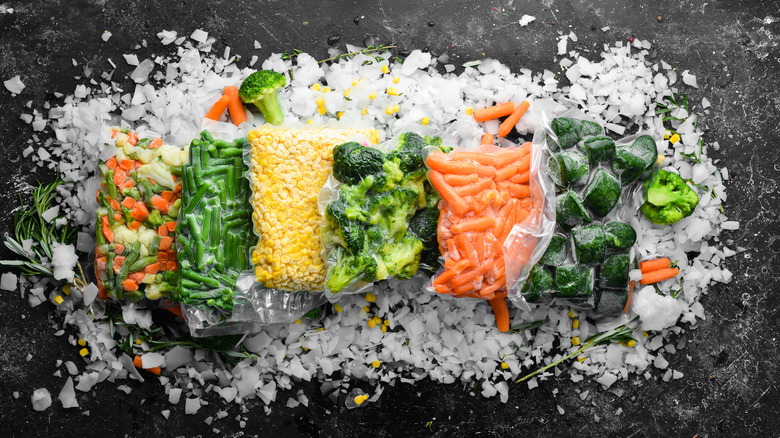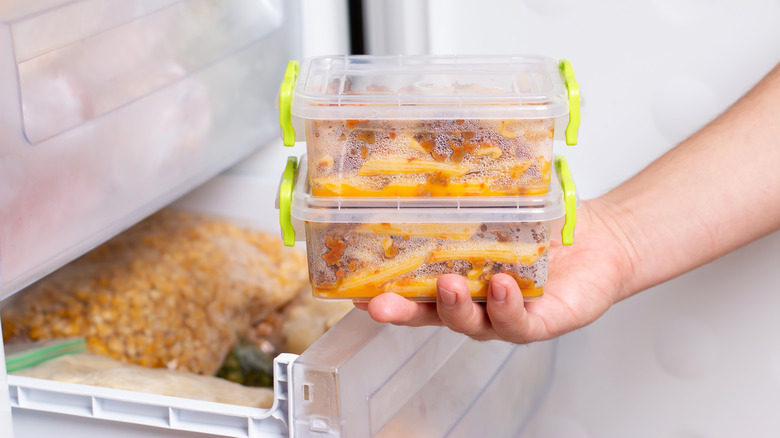Is It Safe To Refreeze Food?
You had the best intentions of making dinner, and grabbed some frozen meat from your freezer to defrost. Then life happened, and you didn't. Or perhaps your power went out, or you left the freezer door open. Which now leaves you contemplating whether you can refreeze that partially (or completely) thawed-out food. You'd rather not have to throw everything out as it's a huge waste, but is it safe to refreeze food?
The good news? Under the right circumstances, it's perfectly safe to refreeze food. A key factor is how the food was thawed, and what temperature it's at. According to the USDA, you can safely refreeze raw or cooked food if it was thawed in the refrigerator, if it still contains ice crystals, or if it's at a temperature of 40 degrees F or below, though they recommend cooking raw food that was previously frozen before refreezing. If the food was left outside the refrigerator or otherwise at room temperature for more than two hours, then it's best to toss the food instead, especially if it's raw. You should also toss out any food that has been thawed out, even if it was done so safely, for more than three or four days, or if it came into contact with any raw meat juices.
Just because it's safe to refreeze food doesn't necessarily mean that you should
While refreezing food may be safe when done properly, there may still be an impact on texture, taste, and quality. When food freezes, ice crystals form within the food, which can cause damage to cell walls. When food refreezes, even more cells will rupture, which will cause the food to become too mushy, warns Bon Appétit. This is particularly true of fruits and vegetables, which are largely water to begin with. For thawed vegetables, it's best to cook them to eat right away or to use them in a soup or stew, which you can then refreeze. Other foods that don't do so well when refrozen include ice cream (the texture will become weird) and juice concentrates (since it's fruit-based, fermentation can set in really quickly), according to The Kitchn.
If you do decide to refreeze food, make sure you store it properly to minimize the risk of freezer burn. Store food in an airtight container, or in freezer bags and use a vacuum sealer, or squeeze out as much air as you can, EatingWell advises. It's also a good idea to label the food with the date, and use it within two or three months, while storing the food in the coldest part of the freezer.

